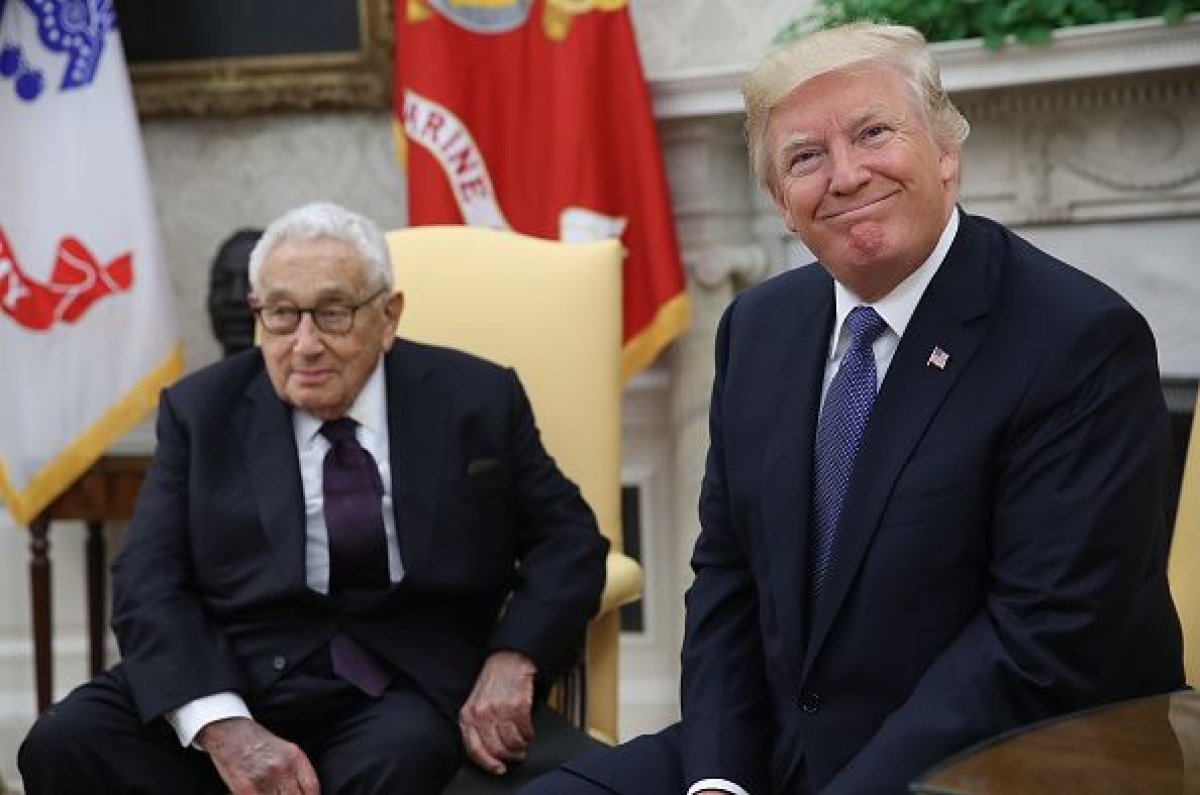President Donald Trump's son-in-law and adviser Jared Kushner started working with an foreign policy organization and its Russian-born CEO after attending an event with former Secretary of State Henry Kissinger, according to reports.
Kushner attended a talk Kissinger gave on U.S.-Russia relations at the Center for the National Interest in 2016, according to Bloomberg. Shortly after, Kushner began a relationship with Dimitri Simes, the center's Russian-born CEO and president, who helped shape Kushner's foreign policy platform and the Trump campaign's position toward Russia.
The Center for the National Interest, established by former President Richard Nixon, has worked to establish itself in Washington as "a leading proponent of foreign policy realism." The center describes itself a "voice for strategic realism in U.S. foreign policy," and its website quotes Nixon's claim that "the United States has won the Cold War but it has not yet won the peace." It hosts a variety of events on national security issues and geopolitics, including discussions with lawmakers like Senator Rand Paul and diplomats such as the current Russian Ambassador Anatoly Antonov.
Over the years, there have been reports linking the center to numerous Russian government-funded initiatives—which the center denies—and recently it was alleged to be linked to Maria Butina, a Russian woman studying in Washington, D.C., who has been charged with conspiracy and accused of using the National Rifle Association to infiltrate Republican political circles on behalf of Moscow. According to reports, the center helped Butina's mentor Alexander Torshin, the deputy head of the Russian central bank and a close ally of Russian President Vladimir Putin, organize meetings with U.S. government officials.
A representative from the Center for the National Interest told Newsweek that Butina attended an event with Torshin only as his translator.

Butina subsequently wrote an op-ed for the center's magazine The National Interest in which she argued that electing a Republican would improve relations between the U.S. and Russia.
"My plea is simply to not surrender to what many view as inevitable conflict between these two great nations, no matter the consequences," Butina wrote in an article entitled the "Bear and the Elephant," published shortly after Trump announced his candidacy.
Simes helped Kushner organize Trump's first major foreign policy speech, and was even responsible for the event's guest list.
"I believe an easing of tensions, and improved relations with Russia from a position of strength only is possible, absolutely possible. Common sense says this cycle, this horrible cycle of hostility must end and ideally will end soon. Good for both countries," Trump said during the speech. "Some say the Russians won't be reasonable. I intend to find out."
It was during this speech at the Washington, D.C.-based Mayflower Hotel where Kushner first came into contact with the erstwhile Russian Ambassador Sergei Kislyak. "It is a matter of public record that the Mayflower event was put together at the request of Mr. Kushner; he testified before Congress to that effect," a representative of the Center for the National Interest told Newsweek.
Kissinger has been tied to the center due to his work for Nixon. Reports have suggested that Kissinger has advocated for the Trump administration to work together with Russia to contain the growing threat of an emerging China. Kissinger also reportedly advocated the same policy in conversations with Kushner.
Correction: This article was updated to remove a reference to suspicions in Washington that the center had ties to Trump's former campaign chairman Paul Manafort: The center denies that its management team knew Manafort at the time Trump's foreign policy speech was organized at the Mayflower. The article also now includes the Center for the National Interest's statement that Butina came to the center only in order to serve as translator, and its denial of Russian links.
Uncommon Knowledge
Newsweek is committed to challenging conventional wisdom and finding connections in the search for common ground.
Newsweek is committed to challenging conventional wisdom and finding connections in the search for common ground.
About the writer
Cristina Maza is an award-winning journalist who has reported from countries such as Cambodia, Kyrgyzstan, India, Lithuania, Serbia, and Turkey. ... Read more
To read how Newsweek uses AI as a newsroom tool, Click here.








